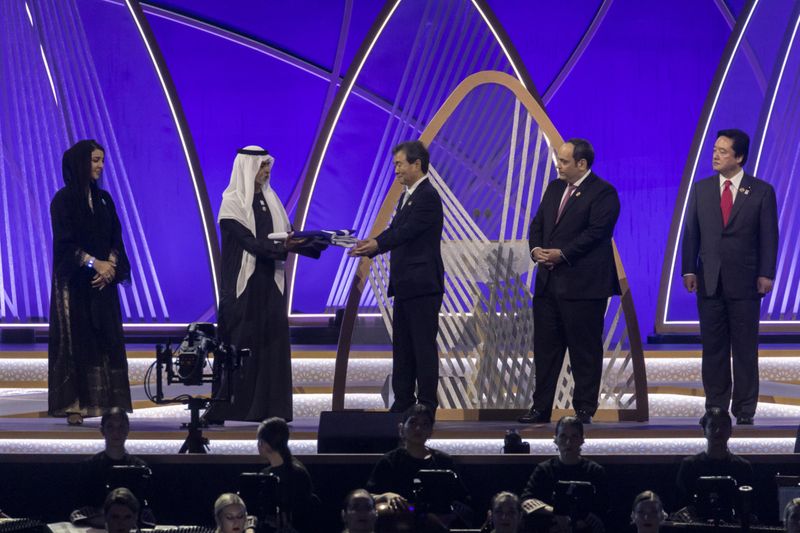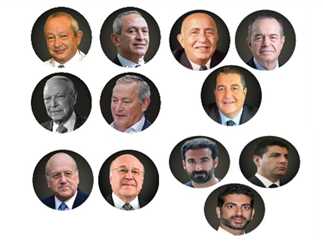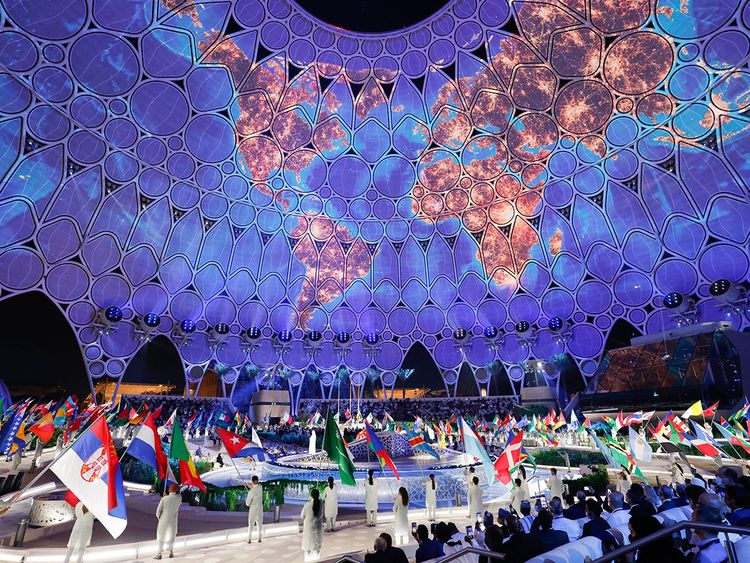The first world expo held in the Middle East ends in style.
After 182 days of diverse and rich activities and events, which enjoyed by millions of visitors from across the world, the curtain of Expo 2020 Dubai, the first world expo held in the Middle East, Africa and South Asia (MEASA) region and the first hosted by an Arab nation, came down on Thursday, March 31, 2022, at the iconic dome-structured Al Wasl Plaza.
The six-month-long exposition, staged under the central theme, “Connecting Minds, Creating the Future”, defied the tremendous challenge of the COVID-19 pandemic, delivering a resounding success.
By organising the world greatest show amidst such challenges, the UAE has removed the world ”impossible” from its lexicon to present a wonderful edition in the event’s long history as His Highness Sheikh Mohammed bin Rashid Al Maktoum, Vice President, Prime Minister and Ruler of Dubai, said in an audio message delivered at the closing ceremony of the mega global event.
We will not be exaggerating if we repeat what millions of visitors have said that Dubai’s remarkable success offered a great challenge for those to come.
Expo 2020 Dubai, which brought together 192 participating nations, is not a mere event that tells the culture and history of participating countries, rather than an invitation to engage and share visions to address challenges facing the humanity.
The UAE selection of the theme, ”Connecting Minds, Creating the Future” as a headline for its campaign to host the exhibition, did not come by chance. The UAE used to look to the future with proactive visions. Despite humanity’s passing through the most difficult and challenging time due to the COVID-19 pandemic and its negative effects on the economies of the world, there was no confusion in the UAE’s approach and calculations.
Projects did not stop or affected by slowness, delay or hesitation. Rather, they continued in an unprecedented harmony that encouraged the international community participate and engage with confidence enhanced by millions of visitors who and their families enjoyed events and activities that many of them may not be able to repeat again and they will proudly tell them to the future generations.
Since the International Exhibitions Bureau (BIE) announced on 27th November 2013 in Paris that Dubai had won the bid to host Expo 2020, no one doubted the UAE’s ability to present to the world the most beautiful and brightest image of an event that had been exclusively hosted by certain cities in regions far away from the Middle East and North Africa.
As usual, the UAE has a proven track-record in areas of communication and fresh innovative concepts and ideas which have been turned into reality over the past decades. An indicator of success of Expo is that the large number of visitors came from outside the country.
Over six months, Expo 2020 Dubai brought together over 190 participating nations, including multilateral organisations and academic institutions, in a defining moment to exchange new ideas and perspectives, inspire meaningful change and create a brighter future for all under the theme, ”Connecting Minds and Creating the Future” through sustainability, mobility and opportunity.
There is no better place and environment than Dubai and the UAE in general to discuss these issues that of major concern to the world. This was clearly reflected in the World Government Summit 2022, which was the best conclusion to an exceptional event.
It was an opportune coincidence that hosting this event preceded the UAE’s Golden Jubilee celebrations in 2021, as the UAE shared its visions, ideas and rich experience in development with the world in an event that chronicles the World Expo events a new.
The UAE deserves deepest congratulations for the remarkable success of Expo 2020 Dubai as the world welcomes Expo 2025 Osaka in Japan.
Opinion: by: Mohammed Jalal Al Rayssi is the Director-General of the Emirates News Agency (WAM)
source/content: gulfnews.com (edited)
____________

___________________________________________
DUBAI, UNITED ARAB EMIRATES (U.A.E)
















